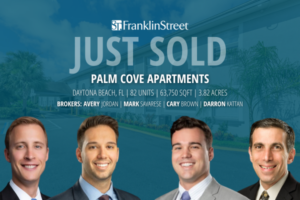When Alpharetta’s massive mixed-use destination Avalon opens Thursday, it will mark the latest example of a fast-growing trend in metro Atlanta — retail and dining developments creating “Main Street” shopping experiences.
From Buckhead Atlanta to the Westside Provisions District to Ponce City Market, developers are encouraging metro residents to get out of their cars and browse stores and restaurant options on foot in the outside air — instead of the sealed environment of malls.
Getting outside, though, is not the only attraction. The developments are about density — eschewing shopping centers with big parking lots for projects combining retail, offices, hotels and residential. The developers often hail from northern and West Coast cities like Cincinnati and San Diego, where land is scarce or too expensive to build the sprawling strip shopping centers that have gobbled up thousands of acres in metro Atlanta.
And developers distinguish the projects by opening stores that aren’t found elsewhere in the region, such as Oak Steakhouse at Avalon, Christian Louboutin at Buckhead Atlanta and Steven Alan and Jack Spade at Westside.
“No matter where a shopping center is located, capitalizing on the best characteristics of Main Street will make consumers feel at home,” said John Torres, vice president of innovation at measurement researcher Nielsen. The best ones “make centers easily walkable and accessible; provide places to sit down and spontaneously run into friends and neighbors; host community events; and incorporate local tenants for a hometown feel.”
That doesn’t mean that malls are dead. While many are in decline, some in metro Atlanta, such as Lenox Square and Perimeter Mall, remain strong draws. Mall operators have beefed up their store mix and have an advantage during inclement weather. They also have more options for more price-sensitive consumers than the new “walkable” centers, which heavily cater to a more well-heeled clientele.
But walkable outside shopping is a huge switch for Atlanta, which, since the heyday of enclosed shopping centers in the ’80s and ’90s, has grown wedded to the comfort of air-conditioning. Not only do we spend more time in our cars than most metro areas, we also seek out parking spaces that are as close as possible to our store destination.
The walkable projects upend that by building garages away from the stores and limiting space in front of them.
Part of their growth is a reflection of new economic realities. Financing for malls, for instance, is nonexistent because they’ve fallen out of favor, and the convenience of online shopping has sapped sales from brick-and-mortar stores.
That has forced developers to step up their game and create an “experience,” retailer lingo for razzle-dazzle options like Ritz Carlton-level concierge service and same-day home delivery of purchases.
The numbers tell the story, said Kristen Miles, Nielsen’s director of analytics.
“In 2008, these lifestyle centers made up 9 percent of total shopping centers in the U.S.,” she said. “In 2014, lifestyle centers make up 18 percent of total shopping centers in the U.S. This is in contrast to traditional malls, regional and super region centers, which are in decline. Regional centers made up 18 percent of total U.S. shopping centers in 2008 and now make up only 11 percent.”
The $600 million Avalon development is atypical of suburban shopping. It offers a “town center” feel with broad sidewalks to make it easier to walk from store to store, parking garages set away from stores to encourage pedestrian traffic and pocket parks and performance areas for community events or taking in the sunshine.
Covering 86 acres, Avalon also includes apartments, townhomes and single-family residences costing as much as $1 million or more and a 12-screen Regal Cinemas.
If follows on the heels this fall of the opening of the $1 billion Buckhead Atlanta project, which reinvented the former party district into a walkable outdoor shopping and dining destination featuring top stores, including Hermes and Shake Shack.
As with all shopping destinations, there are risks to the developments, experts said. The right product mix is critical to the success of walkable outdoor retail.
Consumers are less jazzed about the centers if their lineup of stores are just replicas of traditional malls. Atlantic Station, one of the first walkable lifestyle centers, was heavily criticized initially because of the feeling that it was a mall copycat. That changed as the destination snagged early locations of retailer H&M and trendy dining spots, such as Chick-a-Biddy and Yard House.
Some also have had trouble defining what they are: office complex, shopping center, attractions destination or residential community. Trying to be all at once can confuse customers, who might feel alienated in the same way some diners are scared away from hotel restaurants if they are not staying in a room at the facility.
In addition, developers may be overestimating the affordability of such projects. Millennials, especially those Avalon hopes to attract to its residential units because of Alpharetta’s high-tech jobs, might find the project’s apartments too expensive at up to $5,000 a month, given how much student debt the generation carries, said Emil Gullia, senior director at real estate firm Franklin Street.
Those who can afford to live there have many more options, given the abundance of land in the area, he said.
But Bob Wordes, chief operating officer of The Shopping Center Group, said the positive attributes outweigh the risks. He compared the interest in Main Street shopping to that of the new retractable-roof stadium being built for the Atlanta Falcons.
Many fans consider the weather to be part of the overall football experience, he said.
“People don’t want to be in a dome on a beautiful fall day,” he said. “This is the same thing.”
Avalon by the numbers
Location: Alpharetta off Old Milton Parkway
Size: 86 acres with more than 500,000-square-feet of shopping
Cost: $600 million
Regal Cinemas: 12 screens with lounge
Stores/restaurants: More than 60
Apartments: 250
Single-family homes: 101
Phase II plans: more residences and retail, 14-story office building, hotel and possible convention center
Source: Avalon




